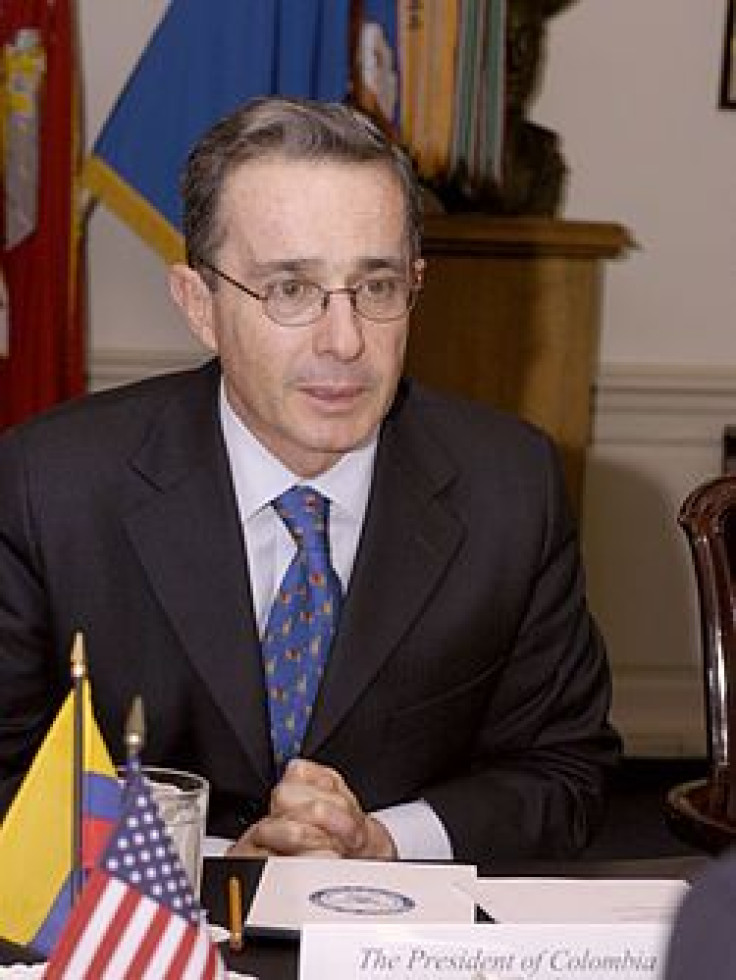
After five decades, Colombians sense that the war with the FARC may finally be coming to an end.
Ten of thousands of Colombians have taken to the streets of Bogotá to show their support for their government's engagement in peace talks with the biggest guerrilla group in Latin America, the FARC (the Revolutionary Armed Forces of Colombia). The conflict has claimed over 600,000 lives and displaced more than 3 million more, according to official figures. The Wall Street Journal reported that the rally has attracted supporters from across social stratas, including students, government workers, peasants, leftist activists and war victims. It was timed to take place on the anniversary of the 1948 murder of left wing presidential candidate Jorge Eliecer Gaitan. Gaitan's murder launched the country into a period of sectarian killing known simply as La Violencia, in which over 200,000 people were killed.
The first round of face-to-face negotiations between the Colombian government and the rebels began in October 2012 in the Norwegian capital of Oslo before reinitiating in Cuba a month later. President Juan Manual Santos has suffered attacks from some corners for being too soft on the rebels. Among the fiercest of them is the country's last president, Alvaro Uribe, who endorsed Santos in his bid for president in 2010 and who enjoyed great popularity during his time in office.
Uribe has expressed misgivings over the possibility that top rebel commanders might be granted immunity and even be considered eligible to run for office. The commanders have been considered terrorists by the government for decades and are wildly unpopular among Colombians for practices that range from the recruitment of child soldiers to cocaine trafficking in order to finance their army. Uribe has said that his opposition to the peace process is against impunity, not against peace. His criticisms appear to reflect the doubts of a portion of the Colombian public -- Santos' approval ratings have suffered in recent weeks largely in consequence.
Santos has not called a ceasefire, saying it would prolong the negotiations. His government has stated that the aim of the peace talks is to get the FARC to put down their weapons and join the political process. Solicitor General Alejandro Ordonez asked the constitutional court on Friday to certify that parts of the legal framework being negotiated are illegitimate. He objected in particular to one article permitting FARC commanders to run for election and hold public office provided they have not committed crimes against humanity. Ordonez, a close ally of Uribe, said that "without guaranteeing rights for the victims, it's impossible to guarantee it won't happen again."
The FARC has been weakened after counter-insurgency efforts during Uribe's terms as president. Still, they are said to be 8,000 troops strong. In recent months they have stepped up attacks against oil and mining installations, according to Reuters.
© 2024 Latin Times. All rights reserved. Do not reproduce without permission.